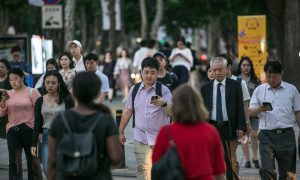With more and more people choosingImmigration to KoreaKorea, as a developed economy and a highly modernized society, offers many opportunities. However.immigrantsKorea is not just about adapting to a new culture, language and lifestyle, but also about understanding and complying with the Korean tax and legal system. Manyrecent immigrantsCommon misconceptions are often made in these areas that can affect their quality of life and even lead to legal disputes.
In this article, we will analyze in detailImmigration to Koreatax and legal issues you may encounter during the process and help you avoid these common pitfalls.
I. Understanding the Korean Tax System
In Korea, the tax system is complex and strict, and foreign residents need to comply with the relevant tax regulations when working and living in Korea. The tax system in Korea mainly includes personal income tax, corporate tax, and consumption tax. Understanding these tax systems can help avoid unnecessary trouble.
1. personal income tax
Korea has a progressive personal income tax system. Foreigners who reside in Korea for more than 183 days are considered "tax residents" of Korea and are subject to personal income tax. The tax rates start at 61 TP3T and go up to 421 TP3T, with the rates listed below:
- 6%: Annual income not exceeding 12 million won
- 15%: Annual income over 12 million won but not more than 46 million won
- 24%: Annual income over 46 million won but not more than 88 million won
- 35%: Annual income over 88 million won but not more than 150 million won
- 42%: Annual revenue over 150 million won
fallacy: Manyrecent immigrantsIt is believed that working in Korea as a foreigner does not require you to pay high taxes. In fact, all tax residents (including foreign residents) are required to file tax returns in accordance with the law.
2. Tax resident vs. non-tax resident
A tax resident is an individual who has lived in Korea for more than 183 days. If you reside in Korea for more than 183 days, even if you are an expatriate, your worldwide income will need to be reported for tax purposes in Korea. Therefore, it is important to know if you are a tax resident.
fallacy: Some immigrants believe that they are only required to report their domestic Korean income and neglect their responsibility to report their global income. In fact, the global income of tax residents is regulated by the Korean tax authorities.
3. Double Taxation Agreements
If you come from a country that has a double tax agreement with Korea, you can enjoy tax relief or exemption between Korea and your original country of residence. For example, the China-Korea Double Taxation Agreement allows for the avoidance of double taxation on the same income. Understanding and applying for applicable tax breaks or exemptions can effectively reduce your tax burden.
fallacy: Many immigrants are unaware of the existence of double tax agreements and fail to proactively apply for tax credits or exemptions, resulting in the payment of unnecessary taxes.
II. Social Insurance System in Korea
The social insurance system in Korea covers pension insurance, medical insurance, unemployment insurance, and work injury insurance. As a foreigner working in Korea, you are also required to pay social insurance.
1. National Health Insurance
National Health Insurance (NHI) in Korea is mandatory and all individuals working in Korea, including foreign nationals, are required to enroll in the system. Depending on the individual's income, the employer usually automatically deducts the cost of health insurance from the paycheck, and the employee pays only a portion.
fallacy: Some new immigrants lack knowledge about health insurance contributions and believe that foreign residents are exempt from this obligation. In fact, foreigners are also required to participate in the National Health Insurance and receive medical subsidies when seeking medical treatment.
2. pension system
The Korean pension system is also mandatory. Like the National Health Insurance, Korean residents and foreigners are required to participate in pension contributions. Employers and employees each pay a portion of the pension contribution.

fallacy: Some foreign immigrants think that they are exempt from pension contributions because they do not intend to reside in Korea for a long time. However, the fact is that all tax residents who live in Korea for a long period of time should participate and contribute to the pension.
III. Understanding the Korean legal system
Immigration to KoreaAfterward, understanding the Korean legal system is key to ensuring a smooth life and work. The Korean legal system differs from that of other countries in a number of ways, particularly in the areas of labor law, real estate law, and marriage and family law.
1. Labor Law and Employment Rights
Korea's labor laws protect the rights and interests of employees and clearly stipulate the legal requirements for wages, working hours, holidays, and dismissal. Foreign employees are also protected and enjoy the same basic labor rights and benefits as Korean employees.
- Payment of wages: The minimum wage in Korea is adjusted annually, and in 2024 the minimum wage will be KRW 9,620 (approximately RMB 57) per hour. Employers must pay wages on time and not less than the minimum wage.
- Dismissal and resignation: Korean labor law has strict provisions on dismissal, and companies are required to provide reasonable grounds for dismissal and to notify employees in advance. Employees are also required to follow the terms of their contract if they choose to resign.
fallacy: Some foreigners believe that as foreign employees, their rights may not be adequately protected. In fact, Korea's labor laws protect foreign employees in the same way as national employees.

2. Property Purchase and Rental
Expatriates can buy or rent a home in Korea, but there are specific legal requirements to be aware of. For example, if you are an expatriate, you will need to prove your legal residency status by means of registered capital, etc. when buying a home. In addition, rental contracts usually require a security deposit (bond) as well as detailed terms for rent payments.
fallacy: Many immigrants believe that they can purchase real estate as long as they have income in Korea. In fact, property purchases are scrutinized for length of residence and source of funds, especially when it comes to taking out a loan to purchase a property.
3. Marriage and family law
Korea's marriage law has clear provisions for foreign spouses, and foreigners may marry Korean citizens, provided that the marriage is duly registered and the relevant legal procedures are followed. For foreign spouses, the Korean government has certain immigration policies that allow for spousal reunification visas or applications for permanent residence.
fallacy: Some immigrants believe that they can easily obtain long-term residence or nationality by marrying a Korean citizen. In reality, there are still a number of conditions that need to be met in order to apply for long-term residence or citizenship, such as length of residence, financial ability, and so on.
IV. How to avoid tax and legal problems?
- Consult a professional in advance: Tax issues, social insurance, and legal matters are more complicated to understand, so before immigrating to Korea, you can consult with a tax advisor, attorney, or immigration specialist to make sure that you are in compliance with local laws and tax requirements.
- Understanding Double Taxation Agreements: If you are from a country that has a double tax agreement with Korea, make sure you understand the relevant tax relief policies to avoid double taxation.
- Proactive compliance: As a foreigner, complying with the tax and legal system in Korea is the basis for obtaining smooth residence and work. Know and comply with local social insurance, labor laws, and other legal requirements to avoid getting into legal trouble due to ignorance.
V. Conclusion
Immigration to KoreaNot only do you need to adapt to a new culture and lifestyle, but you also need to have a clear understanding of the Korean tax and legal system. Through the explanations in this article, you can avoid some common tax and legal misconceptions and ensure that your immigration process is smooth and legal. Understanding tax and legal issues will help your career and life in Korea to be more stable and smooth.






